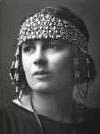 The printing press of Cambridge University has issued a treatise upon our esteemed Edwardian forebears.
The printing press of Cambridge University has issued a treatise upon our esteemed Edwardian forebears.Early twentieth-century feminists caused controversy with the Magisterium by embodying the terrifying spectre of equality of the sexes.
The book also documents the changing meaning of the word feminist, originally used for the French women's movement, and then developing in Britain and America.
The Feminist Avant-Garde: Transatlantic Encounters of the Early Twentieth Century by Lucy Delap (Cambridge University Press)
Edwardian commentators were clear that feminism was no unified entity, but should be divided into competing groups. A survey of ‘modern feminism’ produced in 1914 by a British-born feminist living in the United States, Beatrice Forbes-Robertson Hale, used the metaphor of an army to delineate the main body of parliamentary suffragists, the rear of municipal suffragists, a vanguard of ‘advanced feminists’, and an ultra-radical group of ‘skirmishers’. This study is concerned with delineating the political argument, discourse and intellectual influences drawn upon by these last two groups, whose members referred to themselves as the feminist ‘vanguard’, ‘advanced feminists’, or ‘modern feminists’. I examine the languages, the conceptual resources, the political argument available to feminists, gaining a sense not only of what they said, but how it was possible for them to say it, and the intellectual reception feminism had.
No comments:
Post a Comment